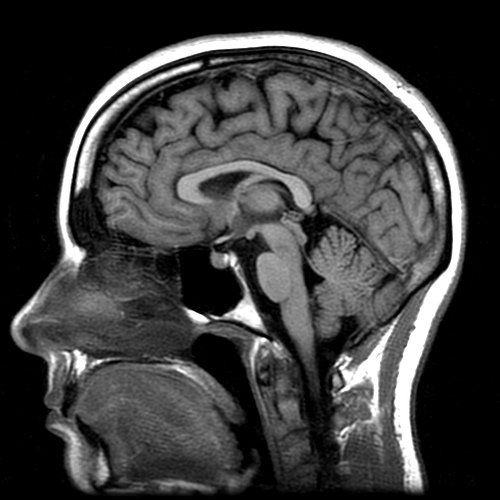12 interesting facts about the human brain
What are thoughts? Who has bigger brain - men or women? Can you live without one brain hemisphere? Is the myth about ten per cent of the brain’s potential being used really true?

You will find the answers for these and other questions in today's article. I noticed that people are not familiar with many interesting facts about the human brain. Enrich your knowledge. Then share it and impress others :)
- Your brain consists of 100 billion neurons. It's over 16 times more than the population of our planet. Every neuron is capable of creating up to 10,000 connections with other nerve cells. A neuron is about 0.1 mm in diameter, but its length can reach up to several meters.
- The brain, which accounts for only 2 per cent of the total body weight, consumes as much as 20 per cent of the energy produced by your body. It’s mainly about the use of oxygen. The brain is very sensitive to oxygen deficiency, so remember to always have a well ventilated room and to breathe deeply.
- The brain is about 80 per cent water. That’s why, brain’s consistency is similar to jello. When one part of the brain is cut out, the rest moves.
- Until recently, it was thought that our neurons are created only in childhood. The recent research has shown that neurogenesis, i.e. the process of formation of new neurons, takes place throughout the whole life of every human being. What's more, the more you exercise your brain, providing it with various stimuli and boosting its activity, the more neurons will be created. As you can see, it depends on you, how fit your brain will be!
- When you're awake, your brain generates about 25 watts of energy. That’s enough electricity to power a lightbulb.
- In 2002, a 7-year-old girl in America underwent a surgery that removed the entire left hemisphere of her brain. The surgery was necessary because the girl had a chronic encephalitis that could cause her death. As we know, the left hemisphere is responsible for speech and other important body functions, so it was expected that after the surgery her ability to communicate and move would be impaired. However, it turned out that the child’s condition after the operation was almost completely normal and she could speak fluently two languages. This fact shows how incredibly plastic the human brain is. If some area of the brain is damaged, another can take over its functions.
- The brain does not feel pain. It does not contain any receptors that could sense the pain. Of course, the brain is surrounded by tissue: the skull, the skin, the nerves, which feel the pain when you bump your head.
- All your thinking is really the electricity and the chemistry of the brain. Chemistry meaning the neurotransmitters that, when released from synapses, are meant to stimulate other neurons. Electricity is the impulse that passes through such a stimulated neuron and at its end also releases neurotransmitters. This is how neurons communicate, which allows the brain to function properly.
- 9. The child’s brain grows after its birth and over the early years of its life through the formation of neuronal connections and the increase of their thickness. Once the established neuronal connection is again stimulated, its thickness (insulation layer) increases. The best insulated connections transmit information as much as 40 times faster than the thin ones. That’s why, the more often you perform some activity, the easier it becomes for you.
- A woman's brain is of smaller size than a man's brain. However, there is no difference in the efficiency of the brain’s activity. So, it turns out that women have more efficient brains than men.
- The myth that we use only ten per cent of our brain is not true. We use our brain at all times, and every part of it has a specifically assigned function. It is correct, however, that we could use these 100 per cent of the brain capacity much better. Our brain has tremendous potential and we can learn how to use it more effectively.
- The amount of information reaching our brain totals 100 megabytes per second.
How fascinating! Still, I think our knowledge of this mysterious and complex organ is just a tiny bit of what we are to find out in the future. With the development of brain-testing apparatus, we are looking ahead to further discoveries and surprises. We only have to wait and see :) Which of these interesting facts about the human brain surprised you the most?
